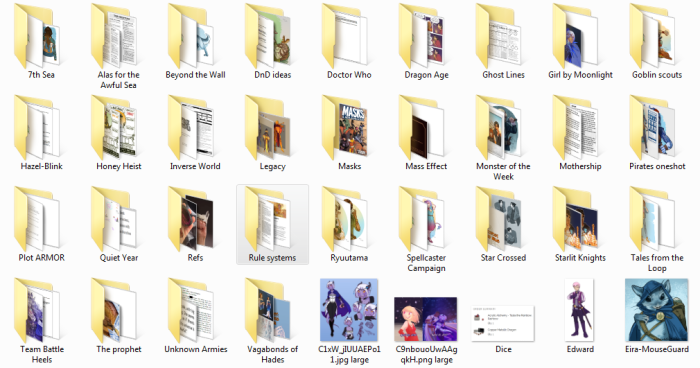In the past two weeks I've acquired 50 games I want to at least flip through from itch and other sources. How do other people keep track of the games they have so they:
1. remember to read what they want to read
2. remember to play what they want to play
3. remember to send feedback they want to send
4. don't destroy themselves or the universe in the process


